afterLoad (456.3KB) (435μs)
afterInitialise (1.27MB) (52.07ms)
afterRoute (827.66KB) (16.13ms)
beforeRenderComponent com_content (35.2KB) (5.43ms)
Before Access::preloadComponents (all components) (67.27KB) (388μs)
After Access::preloadComponents (all components) (98.07KB) (6.47ms)
Before Access::preloadPermissions (com_content) (1.6KB) (15μs)
After Access::preloadPermissions (com_content) (3.29MB) (41.29ms)
Before Access::getAssetRules (id:62 name:com_content.category.20) (130.65KB) (104μs)
After Access::getAssetRules (id:62 name:com_content.category.20) (7.38KB) (44μs)
Before Access::getAssetRules (id:8 name:com_content) (51.77KB) (68.76ms)
After Access::getAssetRules (id:8 name:com_content) (6.17KB) (29μs)
afterRenderComponent com_content (1.47MB) (327ms)
afterDispatch (32.39KB) (9.81ms)
beforeRenderRawModule mod_articles_category (READ MORE...) (398.66KB) (16.26ms)
afterRenderRawModule mod_articles_category (READ MORE...) (65.92KB) (268ms)
beforeRenderRawModule mod_custom (BOOST YOUR IMMUNE DEFENSE) (6.45KB) (28μs)
afterRenderRawModule mod_custom (BOOST YOUR IMMUNE DEFENSE) (4.42KB) (198μs)
beforeRenderRawModule mod_articles_latest (Latest news) (976B) (15μs)
afterRenderRawModule mod_articles_latest (Latest news) (28.24KB) (312ms)
beforeRenderRawModule mod_tags_popular (Search) (2.09KB) (26μs)
afterRenderRawModule mod_tags_popular (Search) (27.98KB) (169ms)
beforeRenderRawModule mod_custom (the Vitamin and Mineral Guide) (960B) (28μs)
afterRenderRawModule mod_custom (the Vitamin and Mineral Guide) (1.02KB) (51μs)
beforeRenderRawModule mod_custom (Weight loss that works) (736B) (12μs)
afterRenderRawModule mod_custom (Weight loss that works) (928B) (23μs)
beforeRenderRawModule mod_custom (Get additionel and more detailed knowledge ) (752B) (9μs)
afterRenderRawModule mod_custom (Get additionel and more detailed knowledge ) (944B) (19μs)
beforeRenderRawModule mod_custom (Q10 goes by many names) (736B) (9μs)
afterRenderRawModule mod_custom (Q10 goes by many names) (928B) (18μs)
beforeRenderRawModule mod_custom (Check this before you buy a Q10 product) (752B) (9μs)
afterRenderRawModule mod_custom (Check this before you buy a Q10 product) (944B) (17μs)
beforeRenderRawModule mod_custom (Are you taking supplements) (736B) (9μs)
afterRenderRawModule mod_custom (Are you taking supplements) (2.28KB) (18μs)
beforeRenderRawModule mod_custom (Antiaging) (720B) (9μs)
afterRenderRawModule mod_custom (Antiaging) (912B) (17μs)
beforeRenderRawModule mod_custom (Exercise) (720B) (8μs)
afterRenderRawModule mod_custom (Exercise) (912B) (17μs)
beforeRenderRawModule mod_custom (Useful Links) (720B) (9μs)
afterRenderRawModule mod_custom (Useful Links) (1.02KB) (17μs)
beforeRenderModule mod_articles_category (READ MORE...) (268.2KB) (3.25ms)
afterRenderModule mod_articles_category (READ MORE...) (1.25KB) (61μs)
beforeRenderModule mod_custom (BOOST YOUR IMMUNE DEFENSE) (6.81KB) (15μs)
afterRenderModule mod_custom (BOOST YOUR IMMUNE DEFENSE) (1.28KB) (26μs)
beforeRenderModule mod_articles_latest (Latest news) (592B) (11μs)
afterRenderModule mod_articles_latest (Latest news) (1.27KB) (21μs)
beforeRenderModule mod_tags_popular (Search) (1.73KB) (12μs)
afterRenderModule mod_tags_popular (Search) (1.27KB) (19μs)
beforeRenderModule mod_custom (the Vitamin and Mineral Guide) (1.31KB) (10μs)
afterRenderModule mod_custom (the Vitamin and Mineral Guide) (1.28KB) (19μs)
beforeRenderModule mod_custom (Weight loss that works) (336B) (9μs)
afterRenderModule mod_custom (Weight loss that works) (1.27KB) (19μs)
beforeRenderModule mod_custom (Get additionel and more detailed knowledge ) (368B) (9μs)
afterRenderModule mod_custom (Get additionel and more detailed knowledge ) (1.3KB) (20μs)
beforeRenderModule mod_custom (Q10 goes by many names) (336B) (9μs)
afterRenderModule mod_custom (Q10 goes by many names) (1.27KB) (19μs)
beforeRenderModule mod_custom (Check this before you buy a Q10 product) (352B) (9μs)
afterRenderModule mod_custom (Check this before you buy a Q10 product) (1.28KB) (18μs)
beforeRenderModule mod_custom (Are you taking supplements) (352B) (9μs)
afterRenderModule mod_custom (Are you taking supplements) (1.28KB) (19μs)
beforeRenderModule mod_custom (Antiaging) (336B) (9μs)
afterRenderModule mod_custom (Antiaging) (1.27KB) (18μs)
beforeRenderModule mod_custom (Exercise) (336B) (8μs)
afterRenderModule mod_custom (Exercise) (1.25KB) (19μs)
beforeRenderModule mod_custom (Useful Links) (336B) (9μs)
afterRenderModule mod_custom (Useful Links) (3.77KB) (19μs)
beforeRenderRawModule mod_menu (Main Menu - English) (37.51KB) (2.81ms)
afterRenderRawModule mod_menu (Main Menu - English) (190.16KB) (3.64ms)
beforeRenderModule mod_menu (Main Menu - English) (720B) (5μs)
afterRenderModule mod_menu (Main Menu - English) (4.86KB) (54μs)
beforeRenderRawModule mod_languages (Sprogskift) (3.94KB) (20μs)
afterRenderRawModule mod_languages (Sprogskift) (21.84KB) (2.74ms)
beforeRenderModule mod_languages (Sprogskift) (720B) (5μs)
afterRenderModule mod_languages (Sprogskift) (5.31KB) (20μs)
beforeRenderRawModule mod_finder () (6.34KB) (12μs)
afterRenderRawModule mod_finder () (128.59KB) (3.3ms)
beforeRenderModule mod_finder () (704B) (6μs)
afterRenderModule mod_finder () (3.29KB) (38μs)
beforeRenderRawModule mod_custom () (6.62KB) (145μs)
afterRenderRawModule mod_custom () (30.89KB) (1.74ms)
beforeRenderModule mod_custom () (704B) (6μs)
afterRenderModule mod_custom () (1.23KB) (49μs)
beforeRenderRawModule mod_menu (Main Menu - English) (5.07KB) (104μs)
afterRenderRawModule mod_menu (Main Menu - English) (6.3KB) (771μs)
beforeRenderModule mod_menu (Main Menu - English) (720B) (4μs)
afterRenderModule mod_menu (Main Menu - English) (1.25KB) (42μs)
beforeRenderRawModule mod_languages (Sprogskift Mobil) (912B) (17μs)
afterRenderRawModule mod_languages (Sprogskift Mobil) (3.89KB) (1.68ms)
beforeRenderModule mod_languages (Sprogskift Mobil) (720B) (4μs)
afterRenderModule mod_languages (Sprogskift Mobil) (1.27KB) (32μs)
beforeRenderRawModule mod_finder () (2.3KB) (11μs)
afterRenderRawModule mod_finder () (6.29KB) (2.15ms)
beforeRenderModule mod_finder () (704B) (4μs)
afterRenderModule mod_finder () (1.23KB) (42μs)
beforeRenderRawModule mod_custom () (8.66KB) (180μs)
afterRenderRawModule mod_custom () (904B) (132μs)
beforeRenderModule mod_custom () (704B) (2μs)
afterRenderModule mod_custom () (2.43KB) (32μs)
beforeRenderRawModule mod_custom () (688B) (90μs)
afterRenderRawModule mod_custom () (896B) (94μs)
beforeRenderModule mod_custom () (704B) (2μs)
afterRenderModule mod_custom () (2.71KB) (25μs)
afterRender (302.11KB) (15.34ms)
| 1 x afterRenderComponent com_content (1.47MB) (24.52%) | 326.97ms |
| 1 x afterRenderRawModule mod_articles_latest (Latest news) (28.24KB) (23.41%) | 312.10ms |
| 1 x afterRenderRawModule mod_articles_category (READ MORE...) (65.92KB) (20.1%) | 267.96ms |
| 1 x afterRenderRawModule mod_tags_popular (Search) (27.98KB) (12.69%) | 169.14ms |
| 1 x Before Access::getAssetRules (id:8 name:com_content) (51.77KB) (5.16%) | 68.76ms |
| 1 x afterInitialise (1.27MB) (3.91%) | 52.07ms |
| 1 x After Access::preloadPermissions (com_content) (3.29MB) (3.1%) | 41.29ms |
| 1 x beforeRenderRawModule mod_articles_category (READ MORE...) (398.66KB) (1.22%) | 16.26ms |
| 1 x afterRoute (827.66KB) (1.21%) | 16.13ms |
| 1 x afterRender (302.11KB) (1.15%) | 15.34ms |
| 1 x afterDispatch (32.39KB) (0.74%) | 9.81ms |
| 1 x After Access::preloadComponents (all components) (98.07KB) (0.49%) | 6.47ms |
| 1 x beforeRenderComponent com_content (35.2KB) (0.41%) | 5.43ms |
| 1 x afterRenderRawModule mod_menu (Main Menu - English) (190.16KB) (0.27%) | 3.64ms |
| 1 x afterRenderRawModule mod_finder () (128.59KB) (0.25%) | 3.30ms |
| 1 x beforeRenderModule mod_articles_category (READ MORE...) (268.2KB) (0.24%) | 3.25ms |
| 1 x beforeRenderRawModule mod_menu (Main Menu - English) (37.51KB) (0.21%) | 2.81ms |
| 1 x afterRenderRawModule mod_languages (Sprogskift) (21.84KB) (0.21%) | 2.74ms |
| 1 x afterRenderRawModule mod_finder () (6.29KB) (0.16%) | 2.15ms |
| 1 x afterRenderRawModule mod_custom () (30.89KB) (0.13%) | 1.74ms |
| 1 x afterRenderRawModule mod_languages (Sprogskift Mobil) (3.89KB) (0.13%) | 1.68ms |
| 1 x afterRenderRawModule mod_menu (Main Menu - English) (6.3KB) (0.06%) | 771μs |
| 1 x afterLoad (456.3KB) (0.03%) | 435μs |
| 1 x Before Access::preloadComponents (all components) (67.27KB) (0.03%) | 388μs |
| 1 x afterRenderRawModule mod_custom (BOOST YOUR IMMUNE DEFENSE) (4.42KB) (0.01%) | 198μs |
| 1 x beforeRenderRawModule mod_custom () (8.66KB) (0.01%) | 180μs |
| 1 x beforeRenderRawModule mod_custom () (6.62KB) (0.01%) | 145μs |
| 1 x afterRenderRawModule mod_custom () (904B) (0.01%) | 132μs |
| 1 x Before Access::getAssetRules (id:62 name:com_content.category.20) (130.65KB) (0.01%) | 104μs |
| 1 x beforeRenderRawModule mod_menu (Main Menu - English) (5.07KB) (0.01%) | 104μs |
| 1 x afterRenderRawModule mod_custom () (896B) (0.01%) | 94μs |
| 1 x beforeRenderRawModule mod_custom () (688B) (0.01%) | 90μs |
| 1 x afterRenderModule mod_articles_category (READ MORE...) (1.25KB) (0%) | 61μs |
| 1 x afterRenderModule mod_menu (Main Menu - English) (4.86KB) (0%) | 54μs |
| 1 x afterRenderRawModule mod_custom (the Vitamin and Mineral Guide) (1.02KB) (0%) | 51μs |
| 1 x afterRenderModule mod_custom () (1.23KB) (0%) | 49μs |
| 1 x After Access::getAssetRules (id:62 name:com_content.category.20) (7.38KB) (0%) | 44μs |
| 1 x afterRenderModule mod_menu (Main Menu - English) (1.25KB) (0%) | 42μs |
| 1 x afterRenderModule mod_finder () (1.23KB) (0%) | 42μs |
| 1 x afterRenderModule mod_finder () (3.29KB) (0%) | 38μs |
| 1 x afterRenderModule mod_languages (Sprogskift Mobil) (1.27KB) (0%) | 32μs |
| 1 x afterRenderModule mod_custom () (2.43KB) (0%) | 32μs |
| 1 x After Access::getAssetRules (id:8 name:com_content) (6.17KB) (0%) | 29μs |
| 1 x beforeRenderRawModule mod_custom (BOOST YOUR IMMUNE DEFENSE) (6.45KB) (0%) | 28μs |
| 1 x beforeRenderRawModule mod_custom (the Vitamin and Mineral Guide) (960B) (0%) | 28μs |
| 1 x beforeRenderRawModule mod_tags_popular (Search) (2.09KB) (0%) | 26μs |
| 1 x afterRenderModule mod_custom (BOOST YOUR IMMUNE DEFENSE) (1.28KB) (0%) | 26μs |
| 1 x afterRenderModule mod_custom () (2.71KB) (0%) | 25μs |
| 1 x afterRenderRawModule mod_custom (Weight loss that works) (928B) (0%) | 23μs |
| 1 x afterRenderModule mod_articles_latest (Latest news) (1.27KB) (0%) | 21μs |
| 1 x beforeRenderRawModule mod_languages (Sprogskift) (3.94KB) (0%) | 20μs |
| 1 x afterRenderModule mod_languages (Sprogskift) (5.31KB) (0%) | 20μs |
| 1 x afterRenderModule mod_custom (Get additionel and more detailed knowledge ) (1.3KB) (0%) | 20μs |
| 1 x afterRenderModule mod_tags_popular (Search) (1.27KB) (0%) | 19μs |
| 1 x afterRenderModule mod_custom (Weight loss that works) (1.27KB) (0%) | 19μs |
| 1 x afterRenderModule mod_custom (Q10 goes by many names) (1.27KB) (0%) | 19μs |
| 1 x afterRenderModule mod_custom (Are you taking supplements) (1.28KB) (0%) | 19μs |
| 1 x afterRenderModule mod_custom (Exercise) (1.25KB) (0%) | 19μs |
| 1 x afterRenderRawModule mod_custom (Get additionel and more detailed knowledge ) (944B) (0%) | 19μs |
| 1 x afterRenderModule mod_custom (the Vitamin and Mineral Guide) (1.28KB) (0%) | 19μs |
| 1 x afterRenderModule mod_custom (Useful Links) (3.77KB) (0%) | 19μs |
| 1 x afterRenderRawModule mod_custom (Q10 goes by many names) (928B) (0%) | 18μs |
| 1 x afterRenderRawModule mod_custom (Are you taking supplements) (2.28KB) (0%) | 18μs |
| 1 x afterRenderModule mod_custom (Antiaging) (1.27KB) (0%) | 18μs |
| 1 x afterRenderModule mod_custom (Check this before you buy a Q10 product) (1.28KB) (0%) | 18μs |
| 1 x afterRenderRawModule mod_custom (Check this before you buy a Q10 product) (944B) (0%) | 17μs |
| 1 x beforeRenderRawModule mod_languages (Sprogskift Mobil) (912B) (0%) | 17μs |
| 1 x afterRenderRawModule mod_custom (Antiaging) (912B) (0%) | 17μs |
| 1 x afterRenderRawModule mod_custom (Exercise) (912B) (0%) | 17μs |
| 1 x afterRenderRawModule mod_custom (Useful Links) (1.02KB) (0%) | 17μs |
| 1 x Before Access::preloadPermissions (com_content) (1.6KB) (0%) | 15μs |
| 1 x beforeRenderRawModule mod_articles_latest (Latest news) (976B) (0%) | 15μs |
| 1 x beforeRenderModule mod_custom (BOOST YOUR IMMUNE DEFENSE) (6.81KB) (0%) | 15μs |
| 1 x beforeRenderRawModule mod_custom (Weight loss that works) (736B) (0%) | 12μs |
| 1 x beforeRenderModule mod_tags_popular (Search) (1.73KB) (0%) | 12μs |
| 1 x beforeRenderRawModule mod_finder () (6.34KB) (0%) | 12μs |
| 1 x beforeRenderModule mod_articles_latest (Latest news) (592B) (0%) | 11μs |
| 1 x beforeRenderRawModule mod_finder () (2.3KB) (0%) | 11μs |
| 1 x beforeRenderModule mod_custom (the Vitamin and Mineral Guide) (1.31KB) (0%) | 10μs |
| 2 x beforeRenderModule mod_finder () (704B) (0%) | 10μs |
| 3 x beforeRenderModule mod_custom () (704B) (0%) | 10μs |
| 1 x beforeRenderRawModule mod_custom (Get additionel and more detailed knowledge ) (752B) (0%) | 9μs |
| 1 x beforeRenderRawModule mod_custom (Q10 goes by many names) (736B) (0%) | 9μs |
| 1 x beforeRenderRawModule mod_custom (Antiaging) (720B) (0%) | 9μs |
| 1 x beforeRenderRawModule mod_custom (Useful Links) (720B) (0%) | 9μs |
| 1 x beforeRenderModule mod_custom (Weight loss that works) (336B) (0%) | 9μs |
| 1 x beforeRenderModule mod_custom (Get additionel and more detailed knowledge ) (368B) (0%) | 9μs |
| 1 x beforeRenderModule mod_custom (Q10 goes by many names) (336B) (0%) | 9μs |
| 1 x beforeRenderModule mod_custom (Check this before you buy a Q10 product) (352B) (0%) | 9μs |
| 1 x beforeRenderModule mod_custom (Are you taking supplements) (352B) (0%) | 9μs |
| 1 x beforeRenderModule mod_custom (Useful Links) (336B) (0%) | 9μs |
| 2 x beforeRenderModule mod_menu (Main Menu - English) (720B) (0%) | 9μs |
| 1 x beforeRenderRawModule mod_custom (Check this before you buy a Q10 product) (752B) (0%) | 9μs |
| 1 x beforeRenderRawModule mod_custom (Are you taking supplements) (736B) (0%) | 9μs |
| 1 x beforeRenderModule mod_custom (Antiaging) (336B) (0%) | 9μs |
| 1 x beforeRenderRawModule mod_custom (Exercise) (720B) (0%) | 8μs |
| 1 x beforeRenderModule mod_custom (Exercise) (336B) (0%) | 8μs |
| 1 x beforeRenderModule mod_languages (Sprogskift) (720B) (0%) | 5μs |
| 1 x beforeRenderModule mod_languages (Sprogskift Mobil) (720B) (0%) | 4μs |
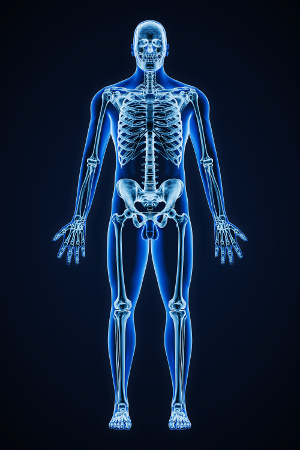 All the different awareness campaigns for sustainability and eating plant-based diets have inspired more and more people to become vegetarians or vegans. However, there are health aspects that need attention. Vegetarians and vegans in particular have lower intakes of protein, vitamin D, and many other essential nutrients, according to a new Spanish study that is published in Nutrients. It is therefore recommended that adult vegetarians and vegans take vitamin D supplements to counter their risk of osteoporosis and other diseases related to vitamin D deficiencies.
All the different awareness campaigns for sustainability and eating plant-based diets have inspired more and more people to become vegetarians or vegans. However, there are health aspects that need attention. Vegetarians and vegans in particular have lower intakes of protein, vitamin D, and many other essential nutrients, according to a new Spanish study that is published in Nutrients. It is therefore recommended that adult vegetarians and vegans take vitamin D supplements to counter their risk of osteoporosis and other diseases related to vitamin D deficiencies.








 There is a growing interest among scientists in selenium’s role in the brain and nervous system, and a placebo-controlled study published in Frontiers in Nutrition shows that
There is a growing interest among scientists in selenium’s role in the brain and nervous system, and a placebo-controlled study published in Frontiers in Nutrition shows that 
 Ageing is characterized by increased physical and mental frailty that reduces one’s ability to deal with various external stress factors.
Ageing is characterized by increased physical and mental frailty that reduces one’s ability to deal with various external stress factors. 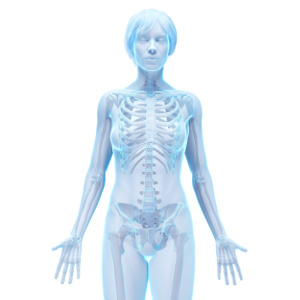
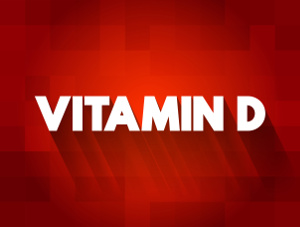

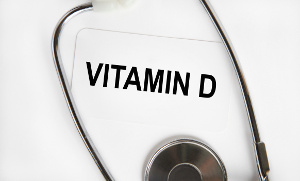
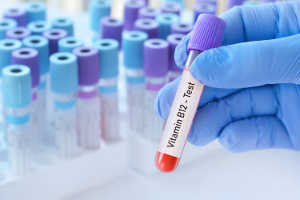 Lack of
Lack of 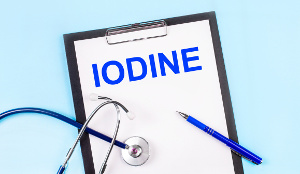 There is a trending global shift towards vegetarian or vegan diets. However, these diets come with a risk of lacking essential nutrients that are primarily found in animal food sources. According to a large meta-analysis of Western diets, one of them is
There is a trending global shift towards vegetarian or vegan diets. However, these diets come with a risk of lacking essential nutrients that are primarily found in animal food sources. According to a large meta-analysis of Western diets, one of them is 
